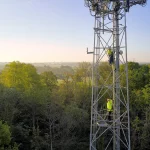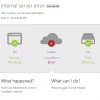European ISPs Seek Net Neutrality Breaking Internet Tax
The European Telecommunications Network Operators Association (ETNO) has called for a controversial change to the International Telecommunications Regulations (ITR) that could make it easier for broadband ISPs to discriminate against internet content providers (e.g. Skype, Google, Netflix etc.), unless they pay for privileged access that is.
Big internet service providers, such as BT and TalkTalk in the UK, have in the recent past (here) made no secret of the fact that they’d favour any content provider (e.g. YouTube over iPlayer) that coughed up enough cash for preferential access. Even the communications regulator, Ofcom, said it 2010 that it could see a “real economic benefit” from taking such an approach, especially in emerging IPTV markets.
Advertisement
But critics of such an ambition fear that it could spread far behind mere IPTV content deals (internet TV services simply aren’t attractive without good content) and thus risk damaging future innovation or even access to existing services, which would put the increasingly shaky notion of Net Neutrality (the principal of treating all internet traffic as equal) under further strain. Just imagine if masses of ISPs began demanding money for access from Skype, which already has a hard time making money.
Now a leaked recommendation to the International Telecommunications Union (ITU) from ETNO calls for a “new IP interconnection ecosystem” that, if adopted into the rules, could make it significantly harder for governments and consumer groups to fight against any future abuses by big access providers (ISP).
Sample of ETNO’s Article 4 Proposal
International Telecommunication Services
4.4 Operating Agencies shall cooperate in the development of international IP interconnections providing both, best effort delivery and end to end quality of service delivery. Best effort delivery should continue to form the basis of international IP traffic exchange. Nothing shall preclude commercial agreements with differentiated quality of service delivery to develop.
The above is just one out of several ETNO proposals, which note that “All telecommunications traffic is migrating to Internet protocol-based communication. This transition from the dedicated phone and data networks to converged IP-based networks raises major regulatory, technical and economic issues.”
At present Europe’s official approach to Net Neutrality, which we covered recently (here), merely recommends “preserving the open and neutral character of the internet“. It also calls upon ISPs to adopt “industry-wide standards on transparency to enable consumers to make informed choices” (e.g. explaining P2P traffic restrictions). The UK government has an almost identical approach (here). Tougher EU rules are on the way but regulatory intervention has already been ruled out.
Advertisement
Ultimately such proposals often ignore the fact that content providers already pay for their bandwidth and servers; there’s nothing even remotely free about running a huge website like Facebook or a video streaming service like Netflix. Meanwhile big consumer broadband ISPs, which are constantly under pressure from an aggressively competitive market, often appear to undercharge for data usage on consumer packages in order to keep prices low.
Clearly ISPs do need some flexibility to strike new content deals, especially in the field of IPTV, and the UK / Europe remain happy for this to occur just so long as the “open internet” is preserved and information kept “transparent“. ISPs that restrict access to popular content also risk shooting themselves in the foot by damaging access to the very content that makes us all want to go online in the first place.
On top of that content providers, for obvious reasons, have shown little interesting in the idea of having to pay twice for their bandwidth costs. As for the new proposals, they will be debated between 20-22nd June 2012, at the 2012 World Conference on International Telecommunications. A further debate may then take place in December 2012 (Dubai WCIT).
Leaked ETNO Proposal (PDF)
http://files.wcitleaks.org/public/ETNO%20C109.pdf
Mark is a professional technology writer, IT consultant and computer engineer from Dorset (England), he also founded ISPreview in 1999 and enjoys analysing the latest telecoms and broadband developments. Find me on X (Twitter), Mastodon, Facebook, BlueSky, Threads.net and Linkedin.
« UK ISP FidoNet Offers 6 Months 80Mbps Superfast Broadband for FREE

















































Comments are closed